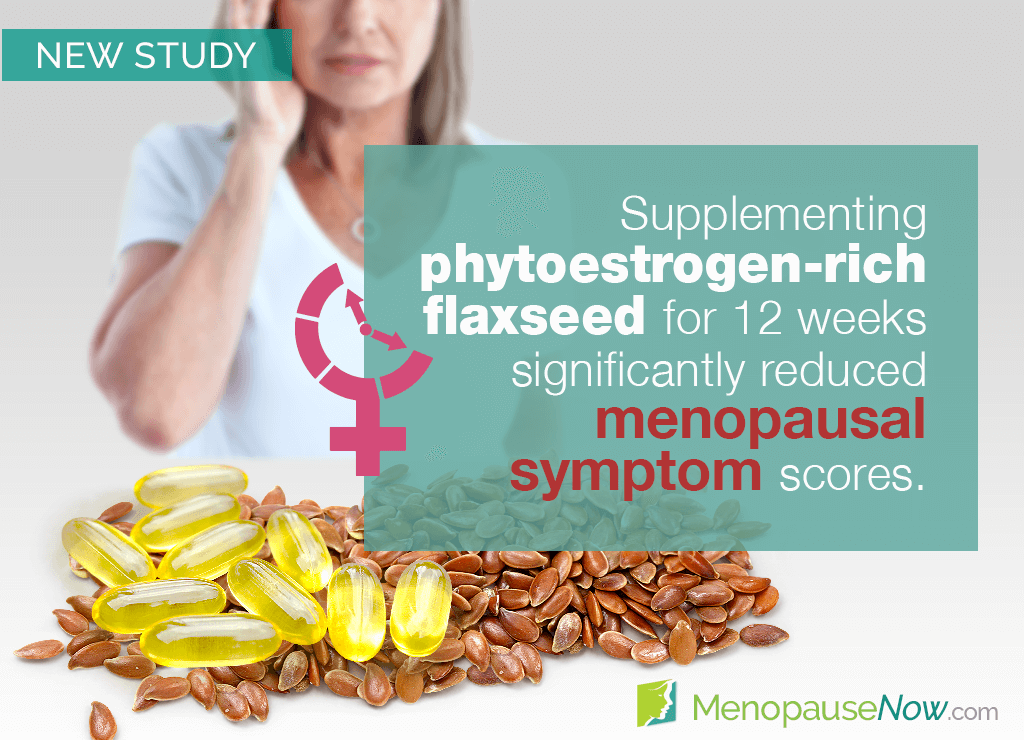Phytoestrogen-rich foods, such as flax, are oftentimes chosen by menopausal women as a replacement for hormone replacement therapy (HRT), which is known for its lasting side effects.1 As science continues to explore their safety and efficacy, women's options for natural alternatives become more and more abundant.
The focus of this Turkish clinical trial was to evaluate the effects of flaxseed on menopause symptoms and quality of life during menopause.
Study Design
The study involved 140 otherwise healthy menopausal women. They were randomly assigned to four groups based on their symptoms and quality of life, each of which followed its own treatment for 12 consecutive weeks.
The experimental group 1 - consisting of women who did not take or could not take HRT - consumed 5 grams of flaxseed per day.
The experimental group 2 also included women who were not on HRT and consumed 5 grams of flaxseed per day in addition to receiving training on menopause symptoms, treatments, and coping strategies.
The experimental variable group consisted of women who had begun or were approved to begin HRT (2 mg of estradiol hemihydrate and 1 mg on norethindrone acetate).
The control group consisted of women who did not receive any treatment.
All participants filled out assessment questionnaires, including the Menopause Rating Scale and the SF-36 Quality-of-Life Scale Physical and Mental Health, before and after the trial. Their anthropometric (e.g., weight, body mass index, etc.) and biochemical values (e.g., cholesterol levels) were measured as well.
Study Findings
An analysis of the Menopause Rating Scale scores showed significant reductions in symptom intensity scores in all groups, except for the control group (by 8.7% for flaxseed only, 9.8% for flaxseed with training, and 10% for HRT).
Women in the control group, on the other hand, showed a significant increase by 6.9%.
An analysis of the SF-36 Quality-of-Life Scale scores revealed substantial increases in both flax-consuming groups for both physical and mental scores. In the HRT group, physical health scores decreased, while mental health scores increased. In the control group, both physical and mental health scores decreased.
What Does It Mean?
These exciting findings demonstrate that flaxseed can effectively reduce menopause symptoms and improve the quality of life among menopausal women.
Interestingly, these beneficial effects were more evident in women who received training, raising the need for more personalized educational approach from women's healthcare providers.
Adding flaxseed to a daily diet is one of the easiest and most natural ways to combat middle-aged discomforts without putting oneself at risk of serious side effects associated with pharmacological treatments.
Sources
- Holistic Nursing Practice. (2015). The effects of flaxseed on menopausal symptoms and quality of life. Retrieved January 26, 2021 from https://pubmed.ncbi.nlm.nih.gov/25882265/
Footnotes:
- The Lancet. (2019). Type and timing of menopausal hormone therapy and breast cancer risk: individual participant meta-analysis of the worldwide epidemiological evidence. Retrieved January 26, 2021 from https://www.thelancet.com/journals/lancet/article/PIIS0140-6736(19)31709-X/fulltext

